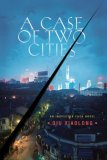- In 1911 the Qing Dynasty was
overthrown, ending 2000 years of
imperial rule. There were many
revolutionary groups but the most
organized was founded by Dr Sun
Yat-sen.
- In WWI the Chinese government
sided with the Allies. In return
they were promised that the German
concessions (foreign territories
within a country) in Shangdong
province would be returned to
Chinese control; at the time China,
especially the coastal areas, were a
mass of foreign concessions,
colonies and treaty ports, owned by
Britain, France, Germany, Russia,
Japan and others. However, not only
was the territory not handed back,
it was awarded to the Japanese. On
May 4, 1919 Beijing students
demonstrated in Tiananmen Square,
starting the nationalistic movement
known as the May Fourth Movement.
- In the early 1920s, Sun Yat-sen,
leader of the Nationalist Party (KMT),
who at that point had never been in
power, accepted Soviet aid and
formed an alliance with the
fledgling Chinese Communist Party (CCP)
with the aim of reunifying China
which, since 1911, had been
controlled by various warlords. Sun
died in 1925 and the leadership was
taken over by Chiang Kaishek.
- Chiang launched his "Northern
Expedition" unifying Southern
China. In Shanghai he launched a
massacre of CCP members, one member
who escaped was Mao Zedong. The
Communists were forced to flee the
cities for the countryside. The
Nationalists tried to hunt them down
and in 1934 were closing in on the
main Communist positions. Under the
cover of night, the Communists broke
out and started running and didn't
stop for over a year, by which time
they had traveled about 6,000 miles
and only 4-8,000 of the original
100,000 remained. This became known
as the Long March (more
about this in Sun Shuyun's The
Long March).
- Meanwhile, the Japanese occupied
Manchuria which proved helpful to
the Communists, as the Nationalist
troops sent North to eliminate the
CCP were much more interested in
fighting the Japanese. In 1937 the
Japanese invaded China from their
base in Manchuria and they soon
occupied the major coastal cities
(by the end of the war in 1945 about
20 million Chinese had been killed
by the Japanese).
- Initially the outbreak of WWII
did not effect the situation in
China, however after 1941 the
Japanese war effort was refocused
fighting America, and the Communists
started to consolidate their control
over North China.
- At the end of WWII, the civil
war between the Nationalists and
Communists began again. In 1949 the
Nationalist leaders fled to Taiwan
and Mao Zedong proclaimed the
creation of the People's Republic of
China.
- In 1958 Mao initiated the Great
Leap Forward, the aim of which was
to increase crop production by
collectivizing farms and using
excess labor in the factories. The
result was the greatest man-made
famine in human history that led to
about 30 million people starving to
death between 1958 and 1960.
- By 1962 China had broken with
the Soviet Union entirely, and in
1966 Mao launched the Great
Proletarian Cultural Revolution,
calling on students to form units of
Red Guards, with the aim of
overthrowing his perceived enemies
and regaining the control he'd lost
during the Great Leap Forward. In
the resulting chaos 3 year chaos,
millions were persecuted and at
least 1/2 million died.
- The Cultural Revolution ended
officially in 1969 but effectively
continued until Mao's death in 1976,
at which time Deng Xiaoping (who had
been "purged" twice during the
Revolution) emerged as leader and
launched his economic reform
program.
- The question of political reform
followed on the heels of economic
reform, coming to a head in the
demonstrations in Tiananmen Square
in 1989. The leaders of the
Communist Party saw the
demonstrations as an attack to their
authority. Officially 200 unarmed
demonstrators died, but the actual
figure is believed to be much
higher.
- Reform stopped for 3 years, but
in 1993 Deng, in one of his last
public appearances, toured the
Shenzhen Special Economic Zone
and gave his firm approval to the
project - from which point on the
Chinese economy exploded.
Filed under Places, Cultures & Identities
 This "beyond the book article" relates to A Case of Two Cities. It originally ran in February 2007 and has been updated for the
October 2007 paperback edition.
Go to magazine.
This "beyond the book article" relates to A Case of Two Cities. It originally ran in February 2007 and has been updated for the
October 2007 paperback edition.
Go to magazine.
This review is available to non-members for a limited time. For full access become a member today.
Membership Advantages
- Reviews
- "Beyond the Book" articles
- Free books to read and review (US only)
- Find books by time period, setting & theme
- Read-alike suggestions by book and author
- Book club discussions
- and much more!
-
Just $45 for 12 months or
$15 for 3 months.
- More about membership!

 Book Reviewed by:
Book Reviewed by:![]() This "beyond the book article" relates to A Case of Two Cities. It originally ran in February 2007 and has been updated for the
October 2007 paperback edition.
Go to magazine.
This "beyond the book article" relates to A Case of Two Cities. It originally ran in February 2007 and has been updated for the
October 2007 paperback edition.
Go to magazine.






